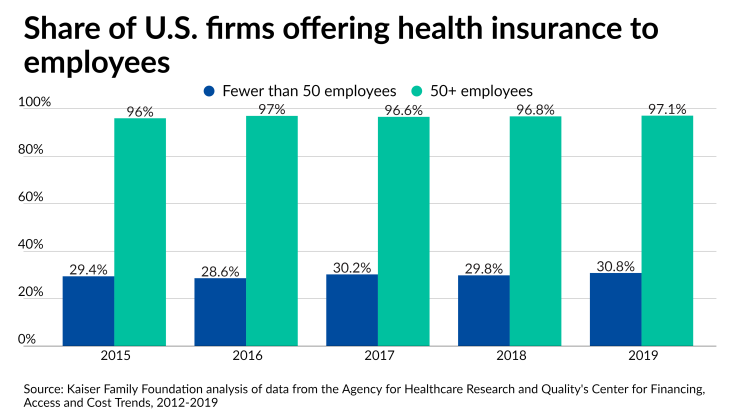Hundreds of independent financial advisors who enrolled in a trade group's new health insurance program this year will be stuck looking for new carriers in 2022.
Roughly 900 advisors out of more than 30,000 who are members of the Financial Services Institute signed up for health insurance that the organization
“While we performed due diligence, including retaining a highly respected international law firm to review the plan documents, and received specific assurances from the health program carrier, we now have reason to believe that the program is not in full compliance with all regulatory requirements,” CEO Dale Brown said in an Oct. 26 email blast. “As a result, we have terminated our relationship with the health program carrier for cause and are no longer endorsing or supporting the program.”
Brown said that the organization’s focus is now on helping enrollees maintain their health coverage in 2022, and he promised to send an update as soon as it’s available. Advisors who joined the program after FSI launched it in April will receive one year of complimentary membership in the organization.
“In the meantime, we encourage you to explore other coverage options that may be available to you,” Brown added. “We do not endorse continued participation in the 2021 program beyond this calendar year.”
Representatives for FSI declined any further comment.
The organization had pledged that advisors, staff and their families could get coverage at savings of up to 50% of the rates on the open market. When the program started, FSI described the insurance as national preferred provider organization (PPO) plans available in all 50 states and in compliance with the Affordable Care Act, also known as Obamacare. The program offered plans at three deductible levels of $2,500, $5,000 and $10,000 with out-of-pocket maximums at the same rates.
“The beauty of the independent model lies in the freedom it gives advisors to open their own business and run it as they choose,” Chris Paulitz, FSI’s head of strategic initiatives, said in a statement at the time. “Yet health care premiums larger than their mortgages can constrain their ability to reach their full potential. Our health insurance plans level the playing field for financial advisors and they no longer have to shoulder their burden alone.”
FSI board member Scott Spiker, the chairman of military and veteran-focused firm First Command Financial Services, issued another statement this spring describing the plans as “exactly what our industry has needed for a long time.”
“Advisors should take a serious look at this plan and switch now,” Spiker said. “I’m urging my advisors to do that and would urge all advisors to do the same.”
It’s not immediately clear what aspects of the plans were not in compliance with health insurance guidelines under the ACA, ERISA and other relevant law. FSI’s program was a self-insured group plan that was subject to the process in which insurers decide the price and level of coverage based on what they know about the participant’s health status, according to Carolyn McClanahan, a financial advisor, physician and policy expert.
“Self-funded plans can get away with a lot. They had medical underwriting and they could drop people — so it wasn’t good insurance to begin with,” McClanahan, the founder of Jacksonville, Florida-based Life Planning Partners, said in an email. “Something that sounds too good to be true probably is.”







